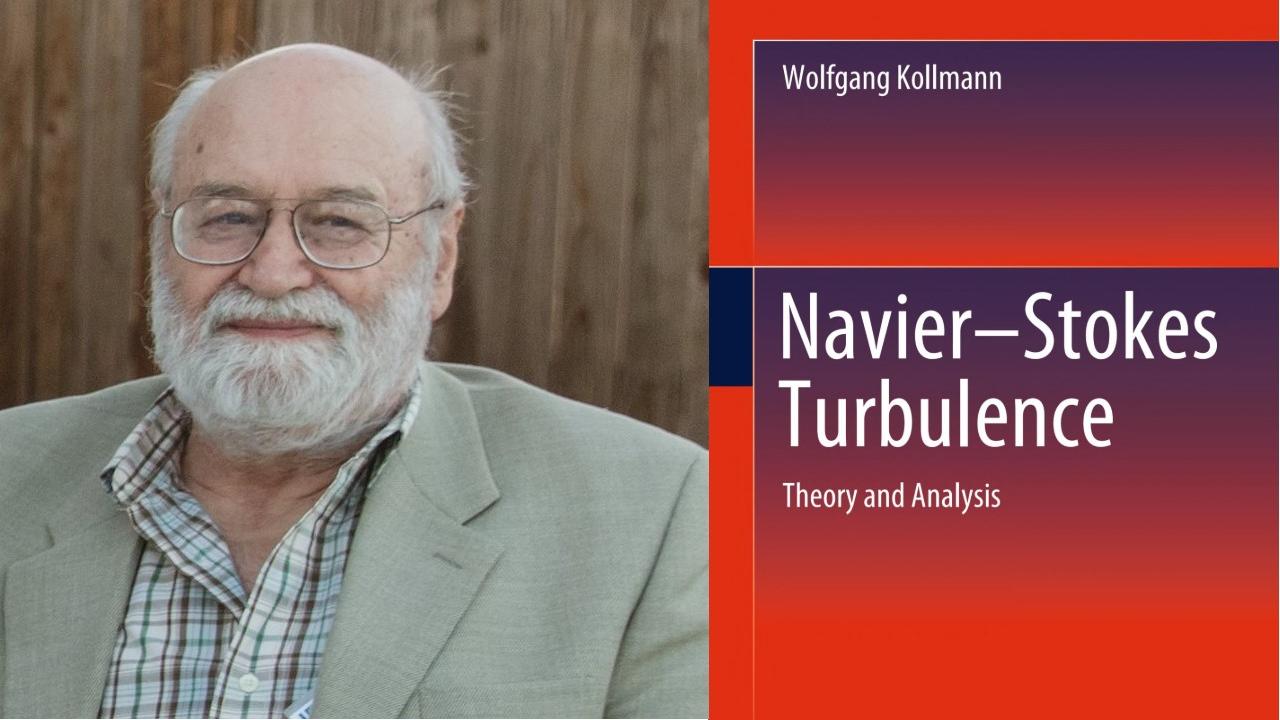
Wolfgang Kollmann publishes new book on turbulent flow
The culmination of over 20 years of teaching and research, mechanical and aerospace engineering professor emeritus Wolfgang Kollmann’s new book lays out different mathematical approaches to analyzing and solving the problem of turbulent flows for graduate students in engineering and applied science. The book, Navier-Stokes Turbulence: Theory and Analysis, was published this December by Springer International Publishing.
Kollmann joined the Mechanical and Aerospace Engineering Department in 1981 and immediately began developing a graduate class, ”Advanced Turbulence Modeling,” which he taught until he retired in 2010. The book is based to a small extent on the teaching notes from this course, along with his research in turbulence modeling, turbulent combustion and numerical methods for the solution of the Navier-Stokes equations.
“Engineering students need to learn turbulent flows,” said Kollmann. “It’s absolutely necessary because any device that involves fluid flow—be it liquids, gases or plasmas—is most likely in the turbulent regime.”
Simply, turbulence is unpredictable and chaotic flow. Regimes become turbulent if a parameter called the Reynolds number, which measures the relative importance of inertial to viscous effects, is large enough. Though the definition is simple, modeling and predicting it is anything but.
Dealing with turbulence involves one of two assumptions—that it exists in a continuum where all variables are regarded as smooth functions of space and time, and that it’s a randomly-determined, phenomenon. The latter approach is challenging because it generates an infinite number of equations with an infinite number of variables to solve to explain what happens mathematically.
The book lays out four different ways to deal with turbulence, including developing finite systems of equations, which is used to develop models for engineering applications such as aircraft and drug delivery systems.
Kollmann is also piloting a new graduate course (MAE 210C) in the MAE department together with professor Stephen Robinson, which he hopes will bring this knowledge to a new generation of engineers.
